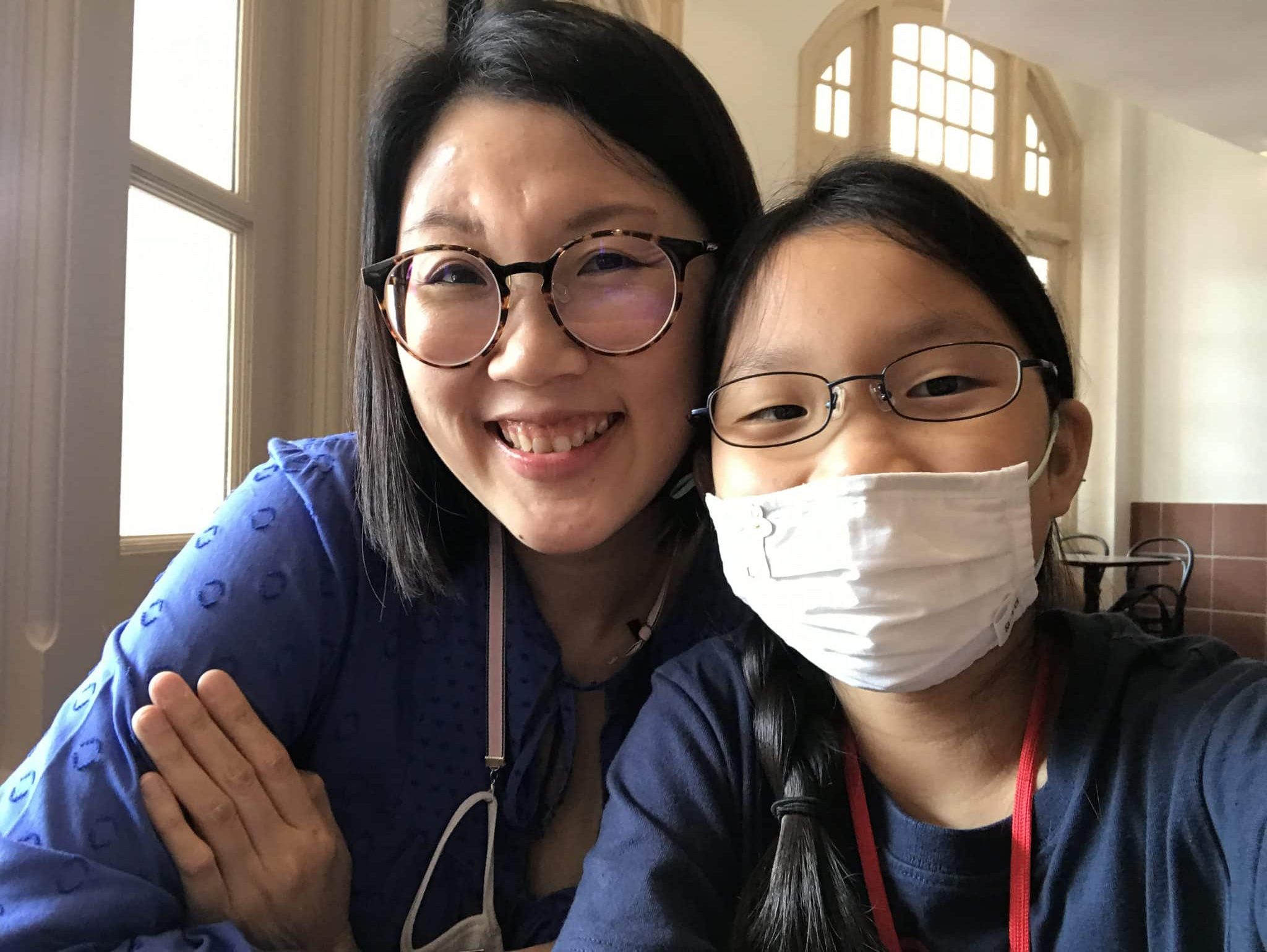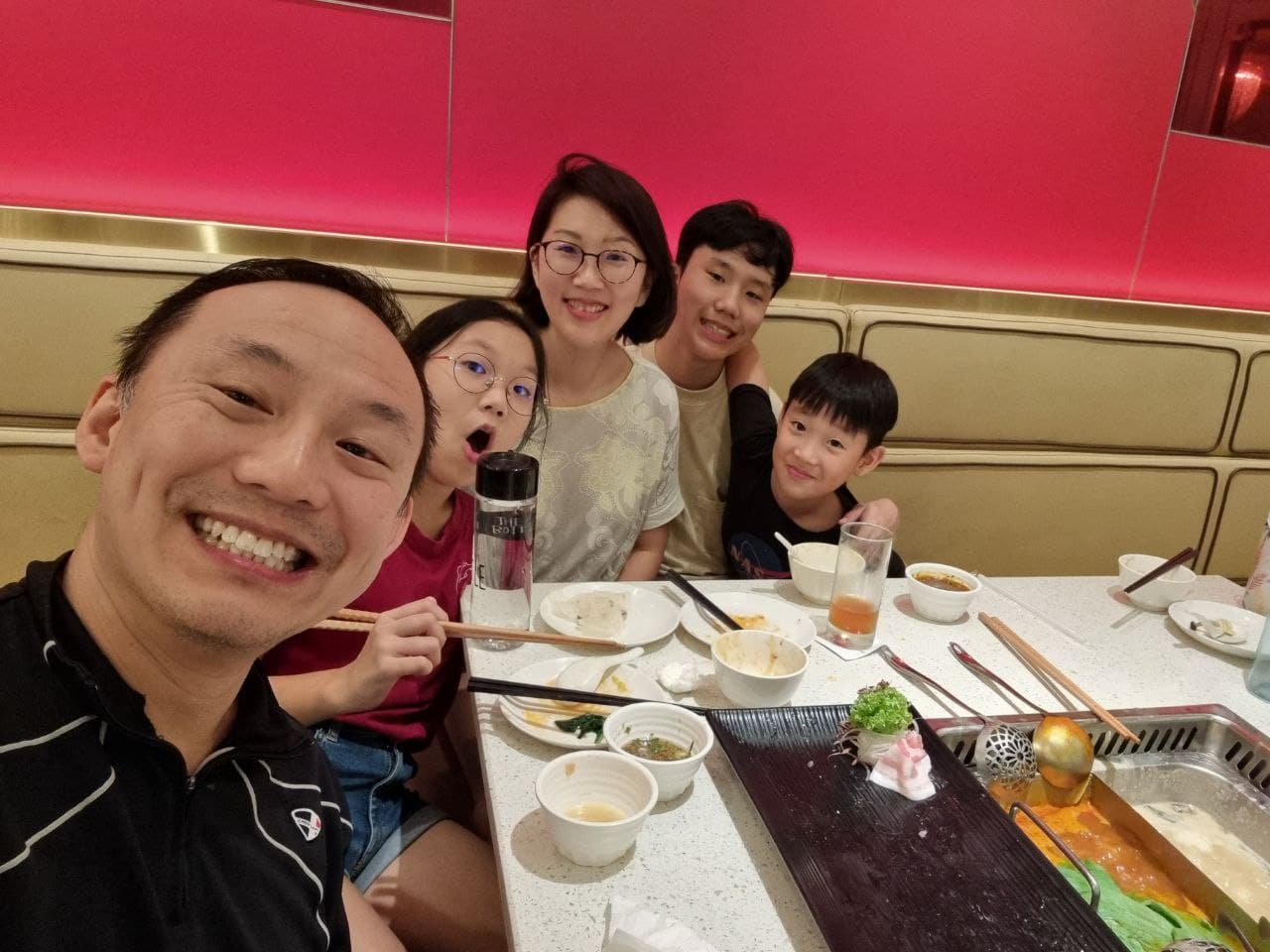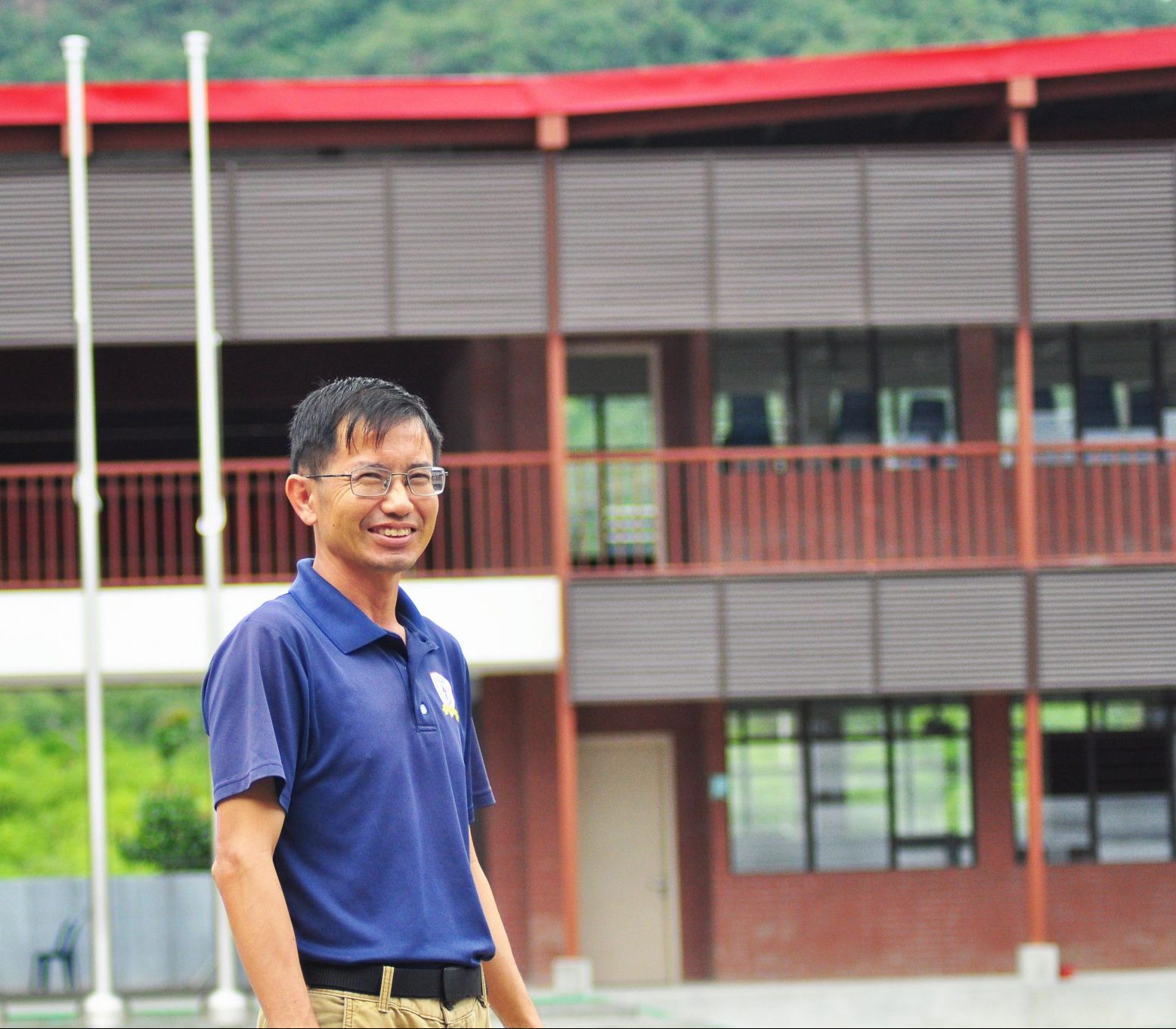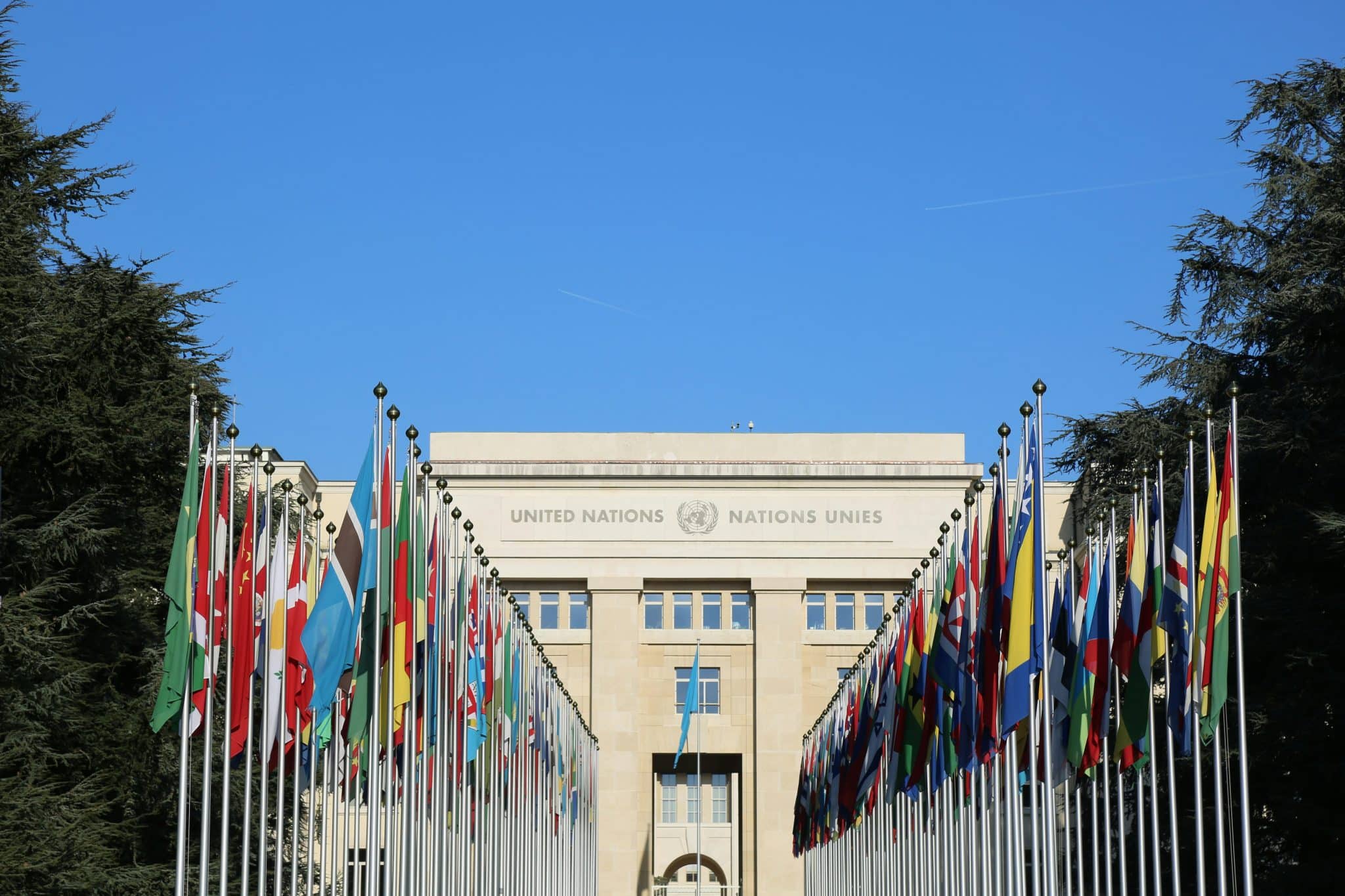Surviving PSLE: Parents share tips on supporting children through their exams
by Gracia Chiang // August 11, 2023, 4:36 pm

Sandra Chi (third from left) has journeyed with two out of her three kids through PSLE, but each child required a different approach. All photos courtesy of interviewees.
It’s been said that when a child is preparing for the exams, sometimes it’s the parents who feel the stress more. But does it really have to be that way?
What can a parent do to provide a calm, assuring presence in the face of pressure? How can a child try his or her best, but ultimately know that their value lies not in the results they manage to achieve?
With the PSLE oral examinations kicking off this Tuesday (August 15), Living Room by Salt&Light spoke to two parents who offer wisdom from their experience.
They are:
- Sandra Chi, 47, mother of two sons, aged 18 and 11, and one daughter aged 15
- Isaiah Kuan, 49, father of two daughters aged 17 and 14
Tips on parenting during the PSLE year from Sandra, a mum of 3
Identify the support your child needs
Having walked through two PSLE journeys and preparing to embark on my third journey next year, it has honestly been different for each child.
In terms of their personalities, academic inclinations and working style, they each had to settle into a rhythm which worked for them.
“I don’t set targets for their scores – each child has different academic potential and learning abilities.”
My job was to assess where their gaps were and work at closing those gaps.
I don’t set targets for their scores – each child has different academic potential and learning abilities. I ask what they want to aim for based on a realistic growth target and provide pointers as to how they might close the gaps.
For example, if they have issues with carelessness in their work, I find it is not helpful to just tell them to be more careful.
If I apply a coaching approach and ask how they might come up with a plan to reduce carelessness, I find that they take greater ownership of the problem and are more motivated to follow-through.
If it was a perseverance gap, I would try to discern the root problem – whether it was motivation, mental exhaustion or the unwillingness to try that stems from a fear of failure – and then think of small steps to address the problem.

Sandra and her daughter, who is now 15. The latter sat for her PSLE during the year that Singapore declared its Circuit Breaker, which also meant more opportunities for family time and tuning in to her child’s needs.
For one of my children, what really helped to overcome a fear of failure was to build greater confidence through sports.
Tasting small successes in a different arena actually built their confidence level and translated to a greater willingness to try a bit harder on the academic front.
Listen to build the relationship
As parents, we are to be a loving authority to our children. It is right for us to set boundaries and limits around them so that they can habituate self-control and perseverance.
But this needs to be balanced with much grace to meet our children where they are at emotionally. The only way I know how to do this is to listen and pray.
I encourage parents to listen to your child’s verbal and non-verbal cues as these are clues to their emotional state.
The best time for this is immediately after school (which is not possible for many parents), but the second golden window is just before bedtime as they wind down.
Take time to ask good questions about their life — about their friends, their day, what was funny in school. As I listen, I ask God for insight into each child’s needs beyond the actual words and tend to those emotional needs.
“I encourage parents to listen to your child’s verbal and non-verbal cues as these are clues to their emotional state.”
Often, my children really don’t want advice; they just want a hug or even to stay quietly next to them when they have a bad day.
Real listening builds empathy and trust.
If your child can trust you as a loving authority, it is a well of connectedness that will take you far beyond the PSLE year and into the tumultuous teenage years.
Reflect before reacting
The big moments of struggle for me were to keep my emotions in check when I was triggered by my children’s actions, whether it was because they seemed to be wasting their potential, or displaying a lack of self-control or poor attitude in their efforts.
When I reacted unthinkingly in frustration to such triggers, it was the fastest road to regret.
“I had to deal with my own parenting motivations, as well as learn to surrender my desire to be in control, my anxiety and my fears.”
For instance, when my child acted out, talked back and refused to do their work, I would be tempted to leap into scolding mode. Sad to say, I didn’t always hold back.
But sometimes, when I paused and prayed, and took the time to probe a little deeper, I found that underlying the heightened emotions was a genuinely bad day at school.
After I tended to the emotions driving the behaviour, it was usually easier to chart a better way forward together and this often made for better outcomes.
Taking the time to deal with my own parenting motivations, as well as learning to surrender my desire to be in control, my anxiety and my fears to God, also prevented me from unleashing on my children the emotional weight of my own frustrations, disappointment or anxiety.
Be aware of what you are unconsciously saying
I had to be mindful of the value system I was passing on too. What I demanded or expected from my child communicated to them what is important to me.
Because the PSLE year is more than an exam, it can be a watershed year, in which a child’s sense of identity, worth and security can be indelibly marked by what they internalise on that journey.

Sandra and her husband Jonathan, 53, are mindful of using family conversations to celebrate their children’s wins – these often go beyond academic achievements.
The academic journey during PSLE is necessary, but I felt it was more important to focus on the long game – values, character and faith formation.
So my husband and I supported my children by modelling for them that while learning and achievement are laudable goals, the PSLE results do not determine who we are and what is our destiny in life.
“Play the long game in parenting: Shoot for the most important prize – your child’s soul.”
This meant that in our family conversations, we celebrated wins in arenas apart from academic achievements, e.g. when a child chose to be kind or inclusive to a friend, or ploughed on faithfully to serve in church.
Ascertain what is of greatest and most eternal value to you, and major on those things in your parenting.
Dos and don’ts
Don’t let your silence speak volumes. Children can feel the crushing weight of our disapproval and disappointment even when unspoken.
Do say: “I believe in you. I am proud of the effort you put in. I love you regardless.”
Affirm their worth, their identity and your unconditional love and acceptance of them no matter what the results are.
Play the long game in parenting: Shoot for the most important prize – your child’s soul.

The Kuan family: Isaiah (49), Jayne (14), Joey (17) and Klessis (45)
Tips on parenting during the PSLE year from Isaiah, a dad of 2
Resist the temptation to compare
My greatest struggle was to manage the pressure of comparison with other parents.
Most parents I know enrolled their kids in top tuition centres or study classes. But I needed to constantly remind myself of the journey I wanted my girls to have.
I know that most parents would be concerned if their child would lack the “cutting edge” if they missed out on tuition or enrichment classes.
But for my wife and I, we both strongly believe that academic results are secondary to a child’s mental and emotional support.
“Be true to what matters most to you. Your child’s academic performance or emotional well-being?”
Both my girls did not have tuition during their primary school years. So we just ensured that they could understand and complete their usual homework as much as possible.
No one child is the same. So, talk to your kid and find out what chilling out means to them. What is too challenging? And how do they want to be supported or comforted?
Know that your child already feels some stress
Like other PSLE students, my girls went through the “mugging” period. They were also worried if they had studied enough and faced peer pressure from classmates.
That is why I feel that having that understanding and support from parents is even more important.
Our children are already stressed enough in school and by their friends, so I do not want to add any stress.

It’s okay to do things differently, says Isaiah. For instance, he planned a short getaway just before his elder daughter’s PSLE to help her relax.
I also constantly remind myself with this verse from the Bible — Colossians 3:21.
One translation describes it this way: “And fathers, don’t have unrealistic expectations for your children or else they may become discouraged.”
Be true to what matters most to you. Your child’s academic performance or emotional well-being?
That said, I tried to be there whenever my child needed support, be it academically or emotionally.
For example, my younger daughter requested for a few extra lessons for Maths, so we enrolled her for about two months, to allow her to build that confidence and feel supported.
Help your child find joys in their journey
I strongly believe in having balanced growth — spiritually, mentally, physically and emotionally.
My wife and I have also encountered many people who have gone through much anguish and heartache in life due to unrealistic expectations from families, friends and even from themselves.
Hence, we wanted our own children to enjoy the journey more than achieving the goal.
I am not saying that results don’t matter, but we have always told our girls that learning and schooling should be fun.
So when preparing for the PSLE, we wanted them to be as relaxed as possible, and to try and have fun along the way.
“We wanted our children to enjoy the journey more than achieving the goal.”
For my elder daughter, we took her for a short break just before her PSLE. It was just a simple trip to get her more relaxed and to remind her of our love regardless of her results.
As long as she tried her best (which we could see that she did), we wanted to tell her that it was okay to enjoy the journey.
Share why you do what you do
When I brought my elder daughter for a trip just before the PSLE, some of her classmates questioned her, so I took time to explain to her why I chose to do it.
It was for her emotional support, and to once again reinforce our core belief that results are not everything. With that explanation, she was more assured of the trip and didn’t feel like she was missing out on studying.

Through Isaiah’s parenting experience with his daughters, he realised that more communication is needed for them to understand his decision-making process.
Maybe because both my children are girls, and girls tend to mature earlier, I realised that they need to know and understand my intentions.
Sometimes we feel our children are too young to understand what we feel or want, but I have come to realise that they want to know what their parents are thinking or feeling too.
Dos and don’ts
Don’t say, “Why are you so lazy? Your friends are doing more assessment books than you. Study more! You’re a failure if you cannot get into a good secondary school.”
Do say, “I love you whatever your results will be. The future is still going to be okay even if you don’t do well enough. I will be here for you. Let’s have some fun!”
MORE ON PSLE PREP:
We are an independent, non-profit organisation that relies on the generosity of our readers, such as yourself, to continue serving the kingdom. Every dollar donated goes directly back into our editorial coverage.
Would you consider partnering with us in our kingdom work by supporting us financially, either as a one-off donation, or a recurring pledge?
Support Salt&Light



